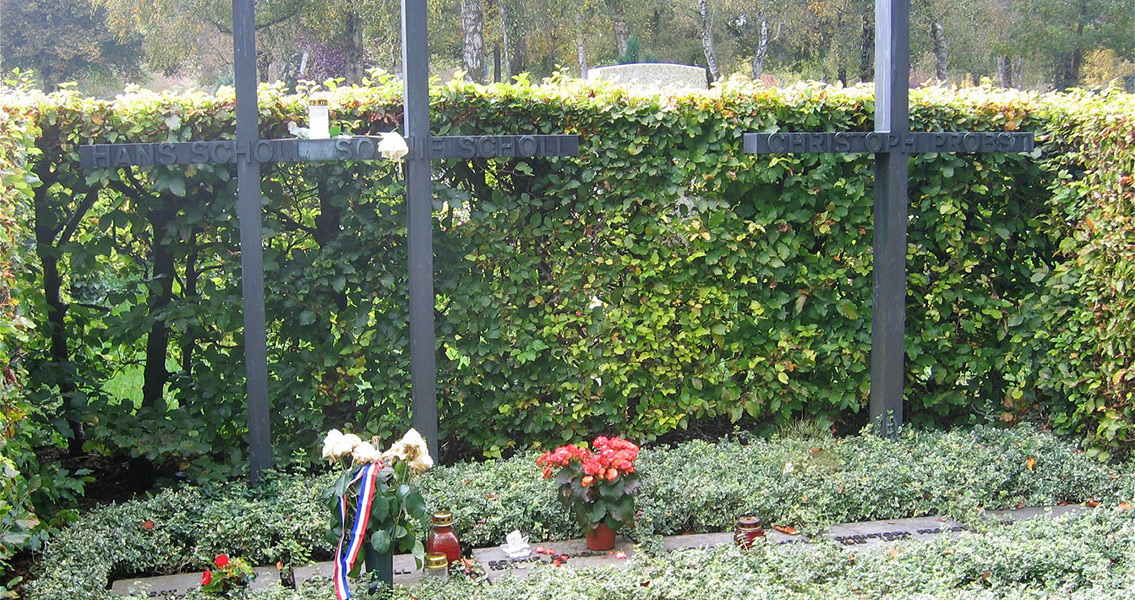<![CDATA[On the 18th February 1943, Hans and Sophie Scholl were arrested by the Gestapo in Nazi Germany. The brother and sister were the organisers of the most famous civilian resistance movement of the period, the White Rose, which had campaigned tirelessly against the Nazi government and German involvement in the Second World War. Munich University medical students Hans and Sophie Scholl were the White Rose's leaders, and most famous members, but there were others from the university who helped with their campaign. By necessity and design the organisation was small, in the hyper paranoid Nazi police state it was vital to maintain discretion over a group whose actions were considered treason. The movement was active from June 1942 until the Scholls' arrest. Revealing the true brutality of the Nazi police state, the members never engaged in any violence or terrorism, only advocating the sabotage of the Nazi military machine. Nevertheless, they would still face execution when the authorities captured them. In the eight months the group was active, it published six anti-Nazi leaflets and embarked on a graffiti campaign in Munich. Of course, the fascist system could not sustain itself if there was open discourse about its morality and validity, which is why the White Rose was so heavily punished. The leaflets called for "passive resistance", explaining that, "The meaning and goal of passive resistance is to topple National Socialism, and in this struggle we must not recoil from any course, any action, whatever its nature." Sophie and Hans Scholl's movement serves as a reminder that not all of the citizens of Nazi Germany were blinded by apathy or propaganda. However, the fact that such a small organisation can stand out as a leading example of civilian resistance, illustrates just how rare acts of defiance were, and the enormous risks the participants had to take. Hans Scholl had served as a soldier on the Eastern Front, witnessing first hand the horrific treatment of Jewish forced laborers, and the mass deportation of Poles to concentration camps. It was this element of the regime, the repercussions of its policies on Jews, Gypsies and other perceived undesirables, which seemed to particularly galvanise the White Rose. Indeed, the first leaflet stated, "A victory of fascist Germany in this war would have immeasurable frightful consequences". Through a small, but trusted network of collaborators, the organisation was able to transport leaflets to other German cities, including Hamburg, Freiburg and Berlin. In Munich, the mimeographed leaflets were often distributed at random, with White Rose members picking a name from the phone book, and delivering a leaflet to that address. Leaflets were also delivered in some public places, and it was when distributing leaflets at Munich University that the Scholl's were reported to the Gestapo, and captured. Hans and Sophie Scholl, along with their collaborator Christoph Probst, were executed for treason on 22nd February. Later, other collaborators were captured, trialed, and executed or imprisoned. Hans Scholl's final words, "Long live freedom", were a poignant statement of exactly what the White Rose movement had stood for - a freedom which had been eroded by the Nazi regime with little opposition. The White Rose's passive resistance was met with a response from Nazi authorities which highlighted just how serious a threat they viewed any dissent. The last leaflet that the White Rose produced was smuggled out of Germany. It would later be duplicated into millions of copies which were dropped on Germany by Allied bombers. The anniversary of the arrest of the White Rose leaders is a reminder that resistance to the spread of Nazism existed inside Germany, as well as internationally. Image courtesy of Wikimedia commons user: Rufus46]]>
Long Live Freedom – Anniversary of the White Rose Arrests
